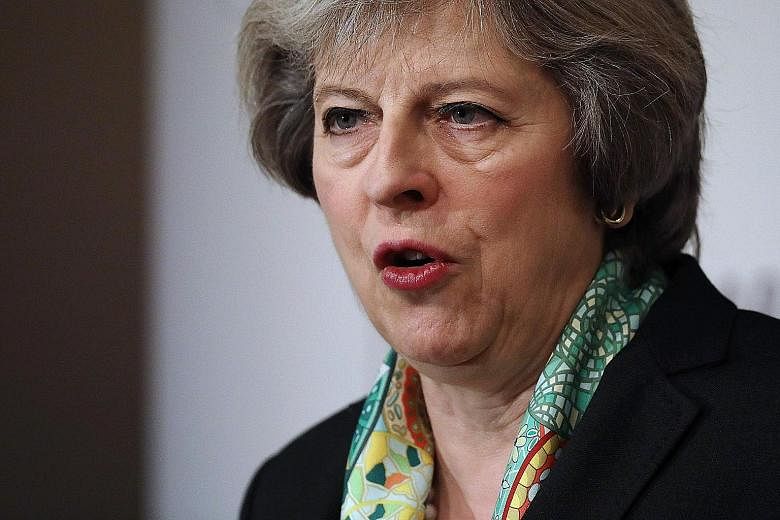Prime Minister Theresa May has outlined a new vision for Britain, accusing other European leaders of failing to address the real concerns of the continent's electorate, thereby driving voters towards populist and extremist parties.
"We see these fringe voices gaining prominence in some countries around Europe," she said in her first major speech of the year, blaming the rise of extremism "on mainstream politicians" who embrace globalisation, but fail to understand that for many, globalisation and free trade "are something to be concerned, not thrilled, about".
The policy speech, one of three Mrs May plans to deliver over the next few weeks, was designed to develop her argument that Britain's recent decision to leave the European Union (EU) is not a uniquely British phenomenon, but part of a broader and more profound voters' backlash which other European governments ignore at their peril.
Still, apart from promising to help create a "shared society", Mrs May offered little practical advice on how to deal with voters' dissatisfaction, leaving her vulnerable to criticism that her arguments are merely intended to hide her government's inability to conduct the separation negotiations with the EU.
Mrs May, who came to power last July, has blamed the vote to leave the EU on a sense of resentment against political elites who regard love of the nation and patriotism as "distasteful", dismiss fears about immigration as "parochial" and voters' concerns about job security as just "inconvenient", as she put it at her ruling Conservative Party's annual conference last year.
In her speech, she continued this broadside by announcing her determination to create a "shared society", one in which inequalities as well as social and health problems are addressed in a new partnership between politicians and people, one which focuses less on individual rights and "more on the responsibilities we have to each other".
This is no traditional appeal for a fairer and better society of a kind politicians worldwide make. Instead, it heralds a radical break with the country's current political consensus, and with policies pursued by centre-right British governments over the past half-century.
To start with, Mrs May is not aiming her policies at the poorest in the country who are already offered social welfare support but, rather, at those who "just about manage", people who have a job but do not always have job security, who own a home but struggle to pay their mortgage, families which "are getting by, not necessarily getting on". That is a much broader category of voters which previous governments largely ignored.
She is ditching the Conservatives' old mantra that government is not the solution to societal ills, but part of the problem. She now vows to "recalibrate the way we approach policy development" to deliver social reform, so that those "just above the threshold that attracts the government's focus today, yet are by no means rich or well-off, are also given the help they need".
Finally, Mrs May makes no apologies for opposing those who instinctively believe globalisation is the answer to all problems. "I am not arguing against globalisation, nor the benefits it brings," she said. Still, she warns that a more global world "loosens the ties that bind our society together" and that people are entitled to be consulted before their surroundings are radically transformed by mass migration.
Mrs May is already on record as vowing that she is ready to pay any economic price in order to bring immigration figures down. But apart from that, her latest speech contained no specific measures. Admitting that "there are no easy answers" to any of the problems she identified, she promised instead a rolling programme of new initiatives over the next few weeks.
There is no question that her conduct in government is proving popular; latest opinion polls suggest that if general elections were held now, Mrs May would be the preferred choice of 40 per cent of voters, way ahead of Mr Jeremy Corbyn, leader of the opposition Labour Party, who is at 26 per cent. Still, the attempt to cast the decision to leave the EU in a wider context has its limitations. For while unveiling a radical domestic agenda, Mrs May has not more than 10 weeks from now before she will have to start the divorce negotiations with the EU.
And, at least for the moment, she appears to have no coherent strategy for that.

